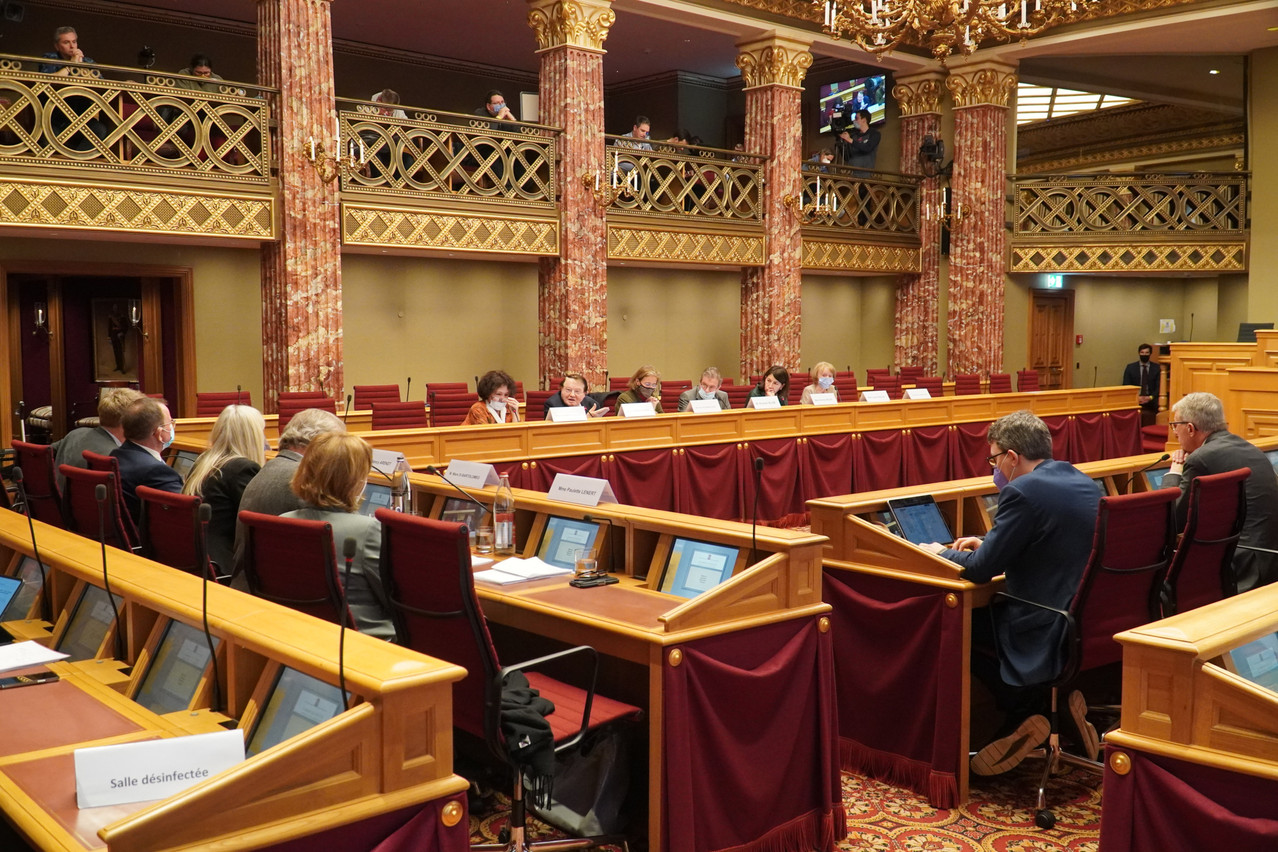A petition against a general vaccine mandate and the discrimination of people who aren’t vaccinated in December reached more than 11,000 signatures, making it eligible for a debate in parliament. The petition author, Christelle Pizzirulli, was aided by a panel of scientists and doctors to support her arguments.
Luc Montagnier, who won the Nobel prize in 2008 for his discovery of the human immunodeficiency virus (HIV), during the debate said that the vaccines kill adults and children. “They’re poison,” he said. The 89-year-old virologist has made headlines in France for his stance on the pandemic.
Montagnier repeated claims he made in French media that the vaccines help the virus mutate. This is contrary to scientific evidence that by helping limit the virus’ spread, vaccines also help prevent mutations.
“When a virus is widely circulating in a population and causing many infections, the likelihood of the virus mutating increases. The more opportunities a virus has to spread, the more it replicates--and the more opportunities it has to undergo changes,” the World Health Organization says. “While we are learning more, we need to do everything possible to stop the spread of the virus in order to prevent mutations that may reduce the efficacy of existing vaccines.”
Montagnier said “it’s not cholera or the plague”, calling covid-19 a “relatively benign illness”. He did not respond to criticism from lawmakers that Sars-CoV-2 has caused more than 5 million deaths worldwide with intensive care patients treated for weeks or months in hospital, in addition to the extended recovery period for patients suffering from so-called long covid.
Excess mortality
Several petitioners invoked Luxembourg’s low excess mortality during the pandemic as evidence that the virus isn’t that dangerous. But health minister Paulette Lenert (LSAP) countered that the rate was low precisely because of the measures taken, including full or partial lockdowns, CovidCheck and vaccination.
Luxembourg’s mortality rate as measured by population was at 6.6‰ in the first 11 months of 2020, compared to 6.3‰ in 2019 and 6.5‰ in 2018, data by statistics office Statec shows. However, with 530 deaths in November 2020--the second wave of the pandemic--mortality was 31.2% higher than the same month in 2019 (404 deaths) and 48% higher than the year before (358 deaths). The number of deaths in November 2020 was the since March 1976.
Data from Eurostat shows that following the roll-out of vaccinations and countries with low vaccination rates saw more dead as the pandemic picked up speed again.
Petitioners refused to answer a direct yes or no question by lawmakers whether they disagree with scientific consensus. “Science isn’t created by consensus. Science is created from doubt,” said Karima Rouzi one of the petitioners.
Deputy Nancy Arendt, who moderated the debate, frequently had to admonish the petitioners to answer the questions by lawmakers rather than pushing their points. They repeated claims that the mRNA vaccines alter human DNA, which have been debunked as the mRNA administered with the vaccination does not enter the nucleus or incorporate itself in the human genome.
Whether petitioners would, for example, support the Novavax formula remained unexplored. The jab is a so-called subunit vaccine, which contains purified pieces of the pathogen, selected specifically for their ability to stimulate immune cells. The fragments used are incapable of causing disease. Popular vaccines against hepatitis B, acellular pertussis and pneumococcal disease also use this technology and the company has said this could help convince sceptics.
Unsupported claims
The scientific evidence cited by the petitioners was not made available for scrutiny. Romain Blum, a dentist, said that 200 athletes had died or collapsed following the covid-19 vaccine but there is no evidence supporting this claim widely circulated on social media.
A video frequently shared of a 17-year-old football player in the US who collapsed during practice actually dates to 2013. The teenager died of an undiagnosed heart condition. Blum said that a “tsunami” of side effects would hit in the wake of the vaccination drive. In Luxembourg, only who received a vaccine have so far reported side effects, most of them benign and with the causal link between the two not established.
“I’m not against vaccination,” the petition author, Pizzirulli, said in her opening remarks, but added that making vaccination mandatory was “not proportional nor justified.”
From there, however, the debate largely descended into a pro or anti-vaccine discussion rather than its original aim to put forward arguments against mandatory vaccination.
“I’m well aware that we’re in a time of doubt,” said Lenert in her closing remarks. But she also said that facts about the virus cannot be denied and warned the petitioners of trivialising the virus when suggesting natural immunity offers enough protection. “Being sceptical is one thing,” she said, but politics must make decisions in the public interest.
Prime minister Xavier Bettel (DP) last week said that an independent group of experts would advise the government during the debate on whether to introduce a general vaccine mandate.
A second debate on Wednesday afternoon discussed a petition, saying that mRNA vaccines, such as the Pfizer/Biontech formula, should not be used on children. Here, too, however, scientists with dubious records on covid-19, such as Christian Perronne from France, made unsubstantiated claims, including that people who are vaccinated are more likely to spread the coronavirus.
The petitioners were also supported by Benoît Ochs, a Luxembourg general practitioner who had his for one year for spreading misinformation about masks and vaccines. He has appealed the decision.
